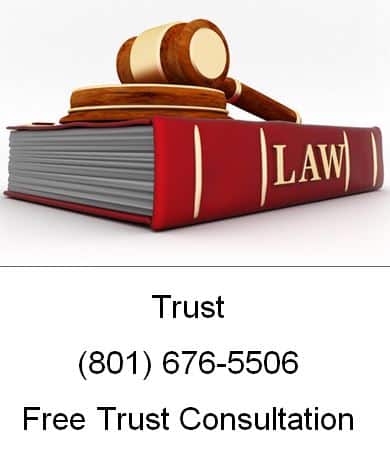By definition, a real estate planning lawyer is an attorney who gives legal advice to clients who own assets that need to be managed during their incapacity or death. This includes the granting or release of these assets to heirs, and the payment of corresponding estate taxes to the state.
Basic Responsibilities of Estate Law Attorneys
Estate planning attorneys are responsible for the determination of specific distribution of their client’s estate to their heirs. They are also the most knowledgeable people who can give advice to clients who plan to set up a trust where assets are saved and reserved for a specific beneficiary. These law practitioners draft wills and other documents that revolve around trusts and estate planning.
Aside from taking care of estate plans and trusts, estate planning lawyers are the best persons who can give insights regarding retirement plans and life insurance laws. They also settle trusts, real estate plans, wills, and related deeds that need court litigation.
An effective estate law attorney is one who has a detailed knowledge of property, trust, wills, and state and federal tax laws. Actually, there are two kinds of estate law attorneys, the litigation real estate attorney and the transactional real estate attorney. Transactional attorneys work on the preparation of documents, review of the documents and negotiate terms, and perform other tasks to get things done on behalf of their clients. The litigation attorney on the other hand, works to resolve in the court of law, real estate transactions that have legal impediments.
What is Real Estate?
Real estate refers to a person’s assets, property or holdings. It is deemed as a person’s net worth at any given time, minus his liabilities. It is important to engage the services of an estate planning lawyer in the disposal or distribution of his estates because it makes the process more systematic and it helps to increase the estate value by way of reduced taxes and other expenses.
What is Probate?
Probate is the first and primary step in the legal procedure of managing a deceased person’s estate. It is the process of validating and approving a person’s will through the probate court. It makes the will a legal document which can be enforced. These are the most basic facts regarding real estate and estate planning lawyers. These will be your first step should you want to establish a trust or find a lawyer to work for the distribution of your estate.
Levels of Estate Planning In Clearfield Utah
The five levels of estate planning is a systematic approach for explaining estate planning in a way that you can easily follow. Which of the five levels you need to complete is based on your particular objectives and circumstances.
Level One: The Basic Plan
The situation for level one planning is that you have no will or living trust in place, or your existing will or living trust is outdated or inadequate. The objectives for this type of planning are to:
• reduce or eliminate estate taxes;
• avoid the cost, delays and publicity associated with probate in the event of death or incapacity; and
• protect heirs from their inability, their disability, their creditors and their predators, including ex-spouses.
To accomplish these objectives, you would use a pour-over will, a revocable living trust that allocates a married person’s estate between a credit shelter trust and a marital trust, general powers of attorney for financial matters and durable powers of attorney for health care and living wills.
Level Two: The Irrevocable Life Insurance Trust (ILIT)
The situation for level two planning is that your estate is projected to be greater than the estate-tax exemption. While there is a present lapse in the estate and generation-skipping transfer taxes, it’s likely that Congress will reinstate both taxes (perhaps even retroactively) sometime this year.
Level Three: Family Limited Partnerships
The situation for level three planning is that you have a projected estate-tax liability that exceeds the life insurance purchased in level two. If your $1 million gift-tax exemption ($2 million for married couples) is used to make lifetime gifts, the gifted property and all future appreciation and income on that property are removed from your estate. More people would be willing to make gifts to their children if they could continue to manage the gifted property. A family limited partnership (FLP) or a family limited liability company (FLLC) can play a valuable role in this situation. You would typically be the general partner or manager and in that capacity, continue to manage the FLP or FLLC’s assets. You can even take a reasonable management fee for your services as the general partner or manager. Moreover, by gifting FLP or FLLC interests to an ILIT, the FLP or FLLC’s income can be used to pay premiums, thereby freeing up your $13,000 / $26,000 annual gift-tax exclusion for other types of gifts.
Level Four: Qualified Personal Residence Trusts and Grantor Retained Annuity Trusts
The situation for level four planning is the additional need to reduce your estate after your $1 million/$2 million gift-tax exemption has been used. Although paying gift taxes is less expensive than paying estate taxes, most people do not want to pay gift taxes. There are several techniques to make substantial gifts to children and grandchildren without paying significant gift taxes.
One technique is a qualified personal residence trust (QPRT). A QPRT allows you to transfer a residence or vacation home to a trust for the benefit of your children, while retaining the right to use the residence for a term of years. By retaining the right to occupy the residence, the value of the remainder interest is reduced, along with the taxable gift.
Another technique is a grantor retained annuity (GRAT). A GRAT is similar to a QPRT. The typical GRAT is funded with income-producing property such as subchapter S stock or FLP or FLLC interests. The GRAT pays you a fixed annuity for a specified term of years. Because of the retained annuity, the gift to the remaindermen (your children) is substantially less than the current value of the property. Both QPRTs and GRATs can be designed with terms long enough to reduce the value of the remainder interest passing to your children to a nominal amount or even to zero. However, if you do not survive the stated term, the property is included in your estate. Therefore, it is recommended that an ILIT be funded as a “hedge” against your death prior to the end of the stated term.
Level Five: The Zero Estate-Tax Plan
Level five planning is a desire to “disinherit” the IRS. The strategy combines gifts of life insurance with gifts to charity. For example, take a married couple; both age 55, with a $20 million estate. Assume that there is neither growth nor depletion of the assets and that both spouses die in a year when the estate-tax exemption is $3.5 million, and the top estate-tax rate is 45%. With the typical marital credit shelter trust, when the first spouse dies, $3.5 million is allocated to the credit shelter trust and $16.5 million to the marital trust. No federal estate tax is due. However, at the surviving spouse’s death, the estate tax due is $5.85 million. The net result is that the children inherit only $14.15 million.
With the zero estate-tax plan, the ILIT (with generation-skipping provisions) is funded with a $13 million second-to-die life insurance policy. These gifts reduce the estate value to $18 million. In addition, the couple’s living trusts each leave $3.5 million (the amount exempt from estate taxes) to their children upon the surviving spouse’s death. The balance of their estate ($11 million) passes to a public charity or private foundation-estate-tax free. To summarize, the zero estate-tax plan delivers $20 million (i.e., $13 million from the ILIT and $7 million from the living trusts) to the children instead of $14.15 million; the charity receives $11 million instead of nothing; and the IRS receives nothing, instead of $5.85 million.
In summary, with some advanced planning, it is possible to reduce estate taxes, avoid probate, set forth your wishes, and protect your heirs from creditors, ex-spouses and estate taxes.
An estate planning lawyer can help individuals create a last will or establish a trust to protect inheritance assets in the event of their death. It is important to select a probate law attorney who listens to your needs and provides sound advice for developing strategies which benefit designated beneficiaries.
Recently, a colleague hired an estate planning lawyer to assist with her terminally-ill mother’s estate.
Although her mother was not a wealthy woman, she owned a home, automobile and held financial portfolios and life insurance policies. The estate attorney was referred through her mother’s credit union. Considerable family strife existed within the family and her mother wanted to disinherit one of her sons. The estate planner executed a simple will and provided strategies to prevent assets from passing through probate.
Due to the nature of illness, the woman’s daughter did not have time to consult with multiple probate law firms. Instead, she was forced to work with an asset protection attorney who had no prior knowledge of her mother, family dynamics, or how she intended to distribute inheritance assets.
The credit union closed their estate planning division due to budget cuts. The daughter was not informed of this and only discovered she no longer had a lawyer for probate after her mother passed away. This created chaos for the daughter who was designated as the probate executor.
To make matters worse, the estate administrator resided in another state. She was forced to locate a new probate litigation attorney just days before returning home. During their meeting, the man expressed no interest in her mother’s estate and was unable to provide advice on how to protect her mother’s Will from being contested by the disinherited son.
Fortunately, she was well-versed in estate planning and had taken steps to obtain asset protection. Because the remainder of the estate was small, the Administrator was able to avoid probate and settle her mother’s estate within a few months.
This goes to show things can go dreadfully wrong when estate planning is put off until a person is terminally ill. Many unwanted issues can arise when trusts and estates are executed during the final weeks of a person’s life.
This is of importance when executing a last will and testament and distributing assets amongst dysfunctional families. When probate estate planning is conducted in the final stages of life, disinherited heirs can contest the will by claiming the decedent was not of sound mine or under the influence of another’s persuasion. When Wills are contested, estates can be suspended in probate for months or years and potentially bankrupt the estate.
Estate and trust planning should be initiated while you are in good health. Hiring an estate planning probate lawyer ensures your final wishes will be followed when you die. It also eliminates stress from the appointed probate personal representative. To find estate planning probate lawyers visit the American Bar Association website, seek out lawyer referral networks, or browse local telephone directories. Interview a minimum of four lawyers. Ask for referrals and follow-up. With the repeal of the estate tax (and generation skipping tax or “GST”), you may have put your estate plan on hold. This could be a serious mistake and put your family’s (and business’) financial future in jeopardy! You need an estate plan whether or not the estate tax (and GST) applies to you. Tax avoidance (or more accurately, minimizing the estate tax) is not the only reason to establish your estate plan.
Do Not Let the State Distribute Your Estate!
The primary focus of most estate plans is to determine how to distribute your assets. If you do not have an estate plan, the state imposes its plan on you, and the state’s succession statutes will determine how your assets are distributed. To avoid having the state decide who is entitled to your assets and how much they will receive you need to have an estate plan.
Rule From the Grave
Perhaps one of the most powerful tools an estate plan can provide is the peace of mind that your hopes and goals for your children will be relevant after you are gone. By transferring your assets through a trust, rather than outright, you can provide substantial limitations on the distributions from the trust. Your lawyer can help craft provisions that link distributions from the trust to certain requirements or goals you wish to impose.
For example, a trust could prohibit or limit distributions to a beneficiary until they reach a certain age or obtain a college degree. On the other hand, the trust can also provide a beneficiary with the right to withdraw funds from to help them with their education, pay for a wedding a house or open a business.
With an estate plan, you can also provide substantial protections to your surviving spouse, your children and the other beneficiaries of your trust. In general, debts and judgments against a trust beneficiary may not be satisfied from trust assets and a beneficiary cannot be forced to demand a distribution. The use of a trust is also effective in keeping the assets separate from a beneficiary’s spouse; this reduces the likelihood of your assets ending up in the hands of a divorcing spouse.
Do Not Delay Have Your Say!
If you have children who are minors, you need to establish who will care for them if you pass away. This may especially important if your child’s other parent is remarried, absent, or otherwise ill-prepared to handle the responsibility of raising your children. Again, if you do not name guardians for your children, the state could appoint someone for them, particularly if your child receives an inheritance. A properly drafted estate plan will address who will be the guardian for your children. You can assign the responsibilities to one or more persons – i.e., one person can be responsible for the general welfare of your child, while another guardian can be solely responsible for their finances.
Plot Your Own Fate and Avoid Probate!
Probate – the administration and distribution of your estate through the probate courts- can be an expensive, time-consuming process. However, with the proper planning it can be easily avoided. Estate planning is especially important to avoid probate when you own real estate in more than one state. You probably have taken certain steps that can help you avoid probate, such as placing your home and bank accounts in joint ownership or providing for rights of survivor ship, and completing beneficiary designations for your 401K/IRA and insurance policies. These steps help avoid probate, but only to a certain degree. These steps often do not allow for more complex distributions.
In addition, these steps only provide for limited distribution/access on your death, but do not address or offer any instruction on how you wish to be treated and cared for if you become disabled, incapacitated, or temporarily unable to make decisions for yourself. Worse yet, these steps may not offer your loved ones the access to your funds, accounts and other assets to pay for your care if you become incapacitated. To avoid probate, you need to need to ensure your property, 401Ks, bank accounts are titled properly and your wishes are properly documented.
Free Initial Consultation with Lawyer
It’s not a matter of if, it’s a matter of when. Legal problems come to everyone. Whether it’s your son who gets in a car wreck, your uncle who loses his job and needs to file for bankruptcy, your sister’s brother who’s getting divorced, or a grandparent that passes away without a will -all of us have legal issues and questions that arise. So when you have a law question, call Ascent Law for your free consultation (801) 676-5506. We want to help you!
8833 S. Redwood Road, Suite C
West Jordan, Utah
84088 United States
Telephone: (801) 676-5506
Recent Posts
Family Law Attorney Free Consultation
Estate Planning Attorney Cedar Hills Utah
Divorce Lawyer and Family Law Attorneys
Ascent Law St. George Utah Office
Ascent Law Ogden Utah Office
source https://www.ascentlawfirm.com/estate-planning-attorney-clearfield-utah-2/




